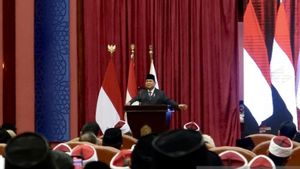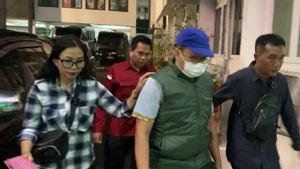JAKARTA - Not only is it feared by the dangers of its nuclear weapons, but cyber threats from North Korea are no less dangerous.
Diplomats from South Korea, the United States, and Japan through working group talks in Washington, United States, Friday, March 29 have discussed trilateral cooperation to counter cyber threats that continue to grow in North Korea.
The three parties, namely the Director General of North Korea Nuclear Affairs, the Ministry of Foreign Affairs of South Korea, Lee Jun-il, representatives of the US and Japan, Debevoise and Naoki Kumagai, have the same concern that North Korean information technology workers (IT) get jobs disguised as IT companies abroad.
The disguise is strongly suspected to aim to generate revenue to help fund North Korea's nuclear and missile programs, including engaging in malicious cyber activity.
BACA JUGA:
Quoted from ANTARA, Saturday, March 30, to prevent North Korean cyber threats, the three diplomats discussed various ways to strengthen cooperation, including increasing collaboration with private companies, involving countries where North Korean IT workers operate, and strengthening international cybersecurity capacity.
Not only that, Lee met with US officials, scholars and experts to discuss the relationship between Pyongyang and Moscow, efforts to cut North Korea's illegal sources of revenue, and other related issues.
The working group of the three countries was launched last December as a follow-up to a cooperation agreement reached by President Yoon Suk Yeol, US President Joe Biden, and Japanese Prime Minister Fumio Kishida at their key summit at Camp David, USA in August 2023.
Previously, the United States and South Korea in October 2023 issued a statement to domestic companies not to sign North Korea's information engineering worker (IT) posing as a local citizen for cash.
Japan followed the issuance of similar guidelines on Tuesday (26/3) while confirming that contracting North Korean workers violates domestic laws, including the Foreign Exchange and Foreign Trade Act as regulated by the United Nations.
The English, Chinese, Japanese, Arabic, and French versions are automatically generated by the AI. So there may still be inaccuracies in translating, please always see Indonesian as our main language. (system supported by DigitalSiber.id)
















